Scarlet Street
Cashier and part-time starving artist Christopher Cross is absolutely smitten with the beautiful Kitty March. Kitty plays along, but she's really only interested in Johnny, a two-bit crook. When Kitty and Dan find out that art dealers are interested in Chris' work, they con him into letting Kitty take credit for the paintings. Cross allows it because he is in love with Kitty, but his love will only let her get away with so much.
Scarlet Street is a 1945 noir tragedy film directed by Fritz Lang. The screenplay concerns two criminals who take advantage of a middle-aged painter in order to steal his artwork. The film is based on the French novel La Chienne (literally The Bitch) by Georges de La Fouchardière, that previously had been dramatized on stage by André Mouëzy-Éon, and cinematically as La Chienne (1931) by director Jean Renoir.
The principal actors Edward G. Robinson, Joan Bennett and Dan Duryea had earlier appeared together in The Woman in the Window (1944), also directed by Fritz Lang. Local authorities in three cities banned Scarlet Street early in 1946 because of its dark plot and themes.
Plot
Christopher “Chris” Cross (Edward G. Robinson), a meek amateur painter and cashier for a clothing retailer, is fêted by his employer for twenty-five years of service. After company head J.J. Hogarth presents Chris with a gold watch and kind words, he leaves the party and gets into a car with a beautiful young blonde. Chris muses to an associate about his desire to be loved by a young woman like that.
Walking home through Greenwich Village, Chris sees a young woman, Katherine “Kitty” March (Joan Bennett), being attacked and knocks her assailant unconscious with his umbrella. Chris, unaware that the attacker is Johnny (Dan Duryea), Kitty’s boyfriend, summons a nearby policeman, but Johnny regains consciousness and flees. After Chris walks Kitty to her apartment building, she accepts his offer of a cup of coffee at a nearby bar. From Chris’s comments about art, Kitty mistakes him for a wealthy painter.
Chris becomes enamored of Kitty. He is stuck in a loveless marriage with his shrewish wife Adele (Rosalind Ivan), who idolizes her previous husband, a policeman believed drowned in the East River while trying to rescue a suicidal woman. After Chris confesses that he is married, Johnny convinces Kitty to feign a romantic interest in Chris to swindle money from him. Kitty inveigles Chris to rent her an apartment which doubles as his art studio. To finance the apartment, Chris steals $500 in insurance bonds from his wife and later $1000 cash from his employer.
Unknown to Chris, Johnny tries selling some of his paintings, leaving them with a Greenwich village street vendor who thinks them worth no more than $25. They unexpectedly attract the interest of art critic David Janeway (Jess Barker), who believes them to be exceptional art. After Johnny persuades Kitty to pretend that she painted them, she charms Janeway with Chris’s own descriptions of his art. Captivated by the paintings and Kitty, Janeway promises to represent her. However, Adele sees her husband’s paintings—signed “Katherine March”—for sale in the window of a commercial art gallery and accuses Chris of copying March’s work. Chris confronts Kitty, who claims she sold them because she needed the money. He is so delighted that his paintings are appreciated, albeit under a ruse, that he happily lets her become the public face of his art. She becomes a huge commercial success, although Chris never receives any of the money.
Adele’s supposedly dead first husband, Higgins (Charles Kemper), suddenly appears at Chris’s office to extort money from him. He explains he did not drown, but disappeared after stealing $2,700 from the purse of the suicidal woman he tried to save. Already suspected of taking bribes from speakeasies, he faked his death to escape his crimes and his wife. Chris lets Higgins into Adele’s room—ostensibly to pilfer the insurance money Adele received after his supposed death—aware she is asleep in the room; Chris assumes that his marriage will be invalidated when his wife wakes and sees her first husband is still alive.
Chris goes to see Kitty, believing he is now free to marry her. Instead he finds Johnny and Kitty in an embrace, confirming his suspicions that they are romantically involved. Believing her infatuation with Johnny is fleeting, Chris asks Kitty to marry him; she spurns him for being old and ugly and laughs in his face. Enraged, he stabs her to death with an ice pick. The police visit Chris for embezzling money from his employer. Although his boss refuses to press charges, Chris is fired. Johnny is arrested for Kitty’s murder.
At the trial, all of Johnny’s small-time hustling and deceptions work against him. Despite his attempt to implicate Chris in Kitty’s murder, Chris denies painting the pictures, claiming to be an untalented artist. Several witnesses confirm Chris’s testimony and attest to Johnny’s misdeeds and bad character. Johnny is convicted and put to death for Kitty’s murder, Chris goes unpunished, and Kitty is erroneously recognized as a great artist.
Haunted by the murder, Chris attempts to hang himself. Although rescued, he is homeless and destitute, with no way of claiming credit for his own paintings. Tormented by thoughts of Kitty and Johnny loving each other eternally, Chris wanders New York constantly hearing their voices in his mind.
Cast
Edward G. Robinson as Christopher Cross
Joan Bennett as Katherine ‘Kitty’ March
Dan Duryea as Johnny Prince
Margaret Lindsay as Millie Ray
Rosalind Ivan as Adele Cross
Jess Barker as David Janeway
Charles Kemper as Patch-eye Higgins
Anita Sharp-Bolster as Mrs. Michaels (as Anita Bolster)
Samuel S. Hinds as Charles Pringle
Vladimir Sokoloff as Pop LeJon
Arthur Loft as Dellarowe
Russell Hicks as J.J. Hogarth
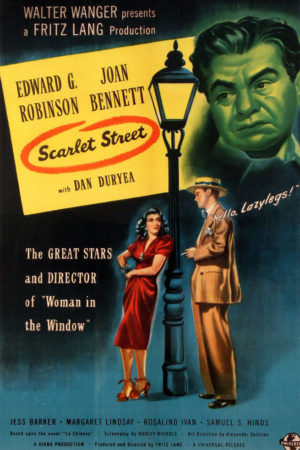
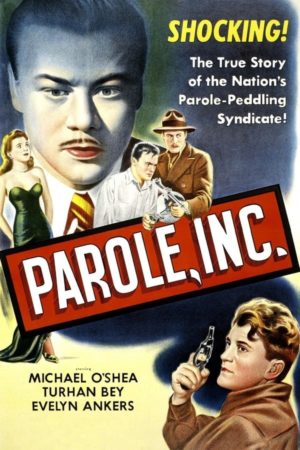
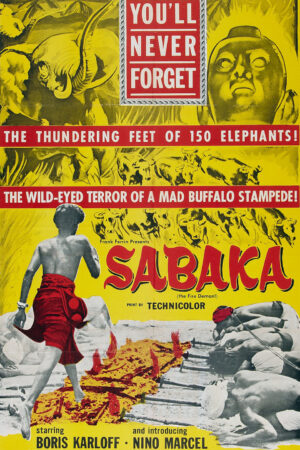
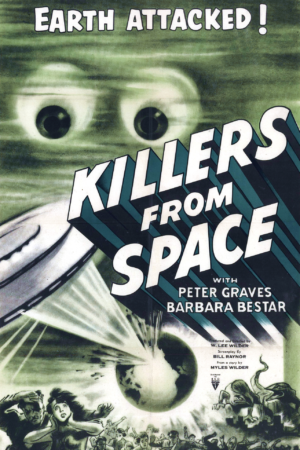

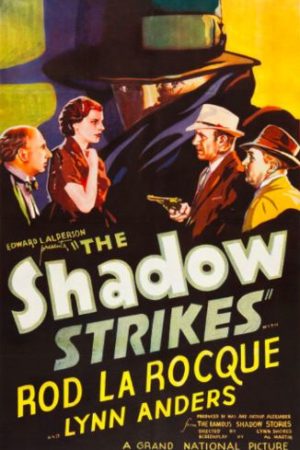
There are no reviews yet.